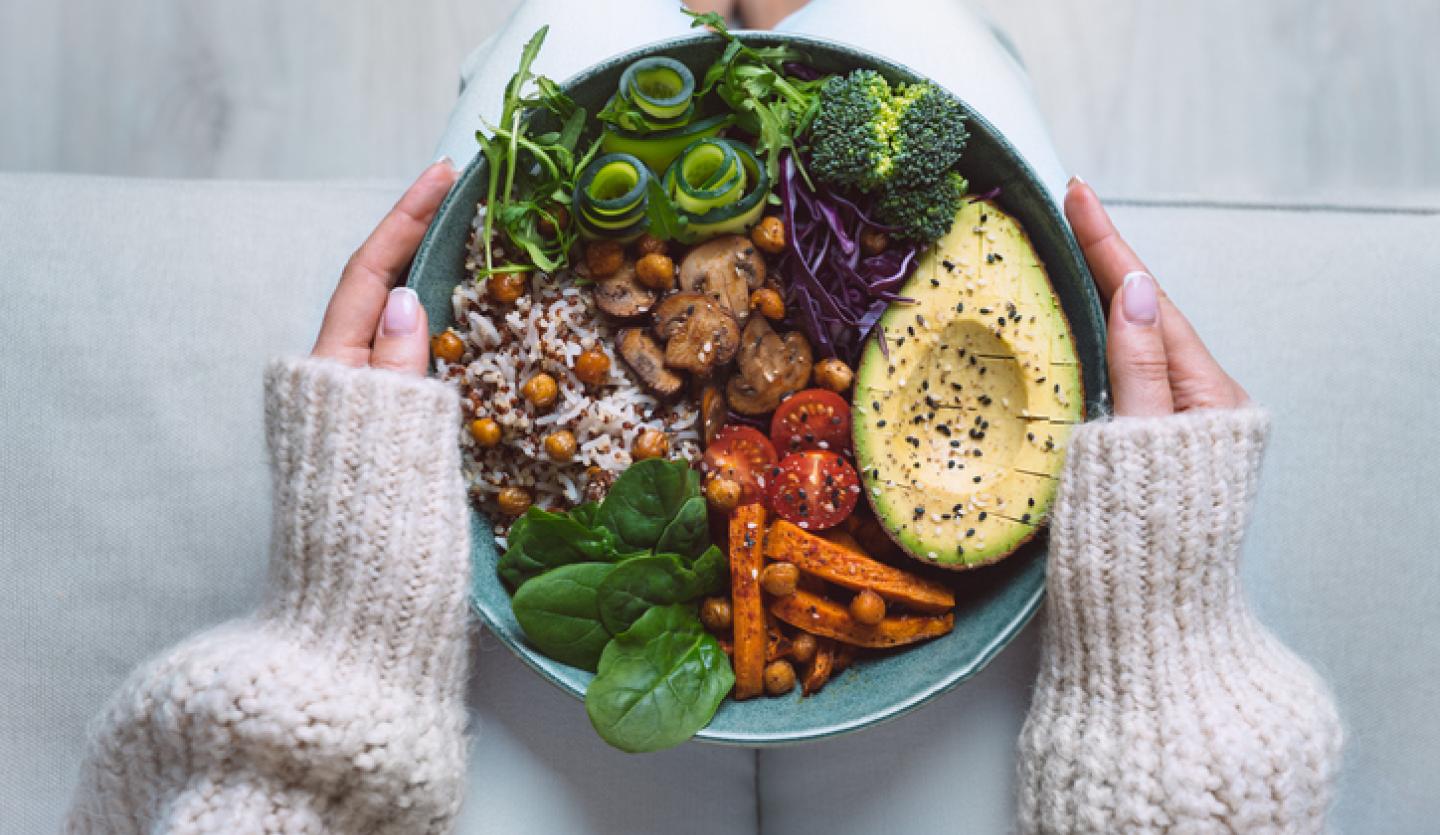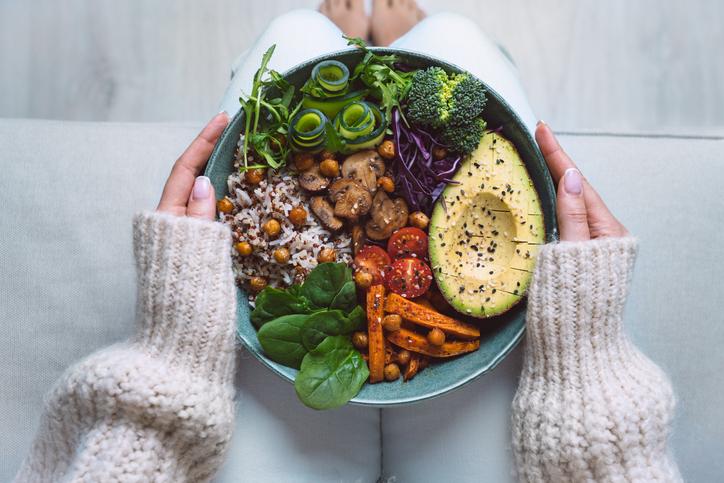What is inflammation?
Inflammation is an immune system response and a sign your body is trying to repair itself. The body sends white blood cells to fight against foreign invaders and heal injuries. This reaction increases blood flow to the affected area, causing redness, swelling or warmth.
“Short-term or acute inflammation is normal and healthy,” said Kerri Patti-Trepiccione, Catholic Health Clinical Dietitian. “Obesity is associated with increased inflammatory markers in the body. This chronic inflammation can lead to conditions such as heart disease, insulin resistance, metabolic syndrome, and diabetes mellitus.”
Patti-Trepiccione noted that certain foods may lead to an environment that either promotes or reduces inflammation in the body. “Unfortunately, the typical American diet encourages weight gain, which increases inflammation,” she said. “It is filled with ultra-processed foods, high in sugar, and excessive calories. Anti-inflammatory eating patterns are high in fruits, vegetables, beans, fatty fish, and nuts and are also calorie controlled.”
What is an anti-inflammatory diet?
Although there is no specific anti-inflammatory diet, certain ways of eating (like following the Mediterranean diet) focus on foods that reduce inflammation. These foods include fruits, vegetables, nuts, fatty fish and whole grains.
A diet consisting of anti-inflammatory foods along with exercise and weight loss may improve your overall health by:
- Improving blood sugar control
- Reducing the risk of chronic diseases
- Helping to lower blood pressure
- Enhancing cognition and mental health
Several studies also link anti-inflammatory diets to a decreased risk of depression.
What foods are part of an anti-inflammatory style of eating?
Foods include:
- Avocados
- Barley
- Brown rice
- Berries
- Cumin
- Extra virgin olive oil
- Fatty fish like mackerel, salmon and tuna
- Grapes
- Green tea
- Mushrooms
- Peppers
- Turmeric
What foods may contribute to inflammation?
Foods that contain high amounts of saturated fat, trans fat, and refined carbohydrates can lead to obesity and its related inflammation. Diets that create an imbalance of Omega-3 and Omega-6 fatty acids could also contribute to inflammation. Often, it is ultra-processed foods such as fast foods, conveniently packaged items, or fried foods. It is also important to understand that individual food allergies and sensitivities can contribute to inflammation.
The following foods, if consumed as part of a regular diet, may lead to obesity, inflammation and, ultimately, chronic disease:
- Chips and other snacks such as crackers, cookies and pretzels.
- Fried foods, such as french fries and doughnuts.
- Processed meats such as bacon and bologna.
- Refined carbohydrates in candy, some cereals and white bread.
- Sugar and high fructose corn syrup.
Experts have also found excessive alcohol can cause inflammation.
How do I know if I have chronic inflammation?
Inflammation is usually a short-term response to disease or injury. The response can sometimes continue for months or years after the injury heals. Experts have found that obesity caused by an unhealthy diet, stress and smoking can contribute to chronic inflammation.
Common signs and symptoms of chronic inflammation include:
- Chronic fatigue
- Depression, anxiety and mood disorders
- Joint stiffness or pain
- Trouble sleeping
- Unexplained weight loss or weight gain
“Multiple conditions can cause these symptoms, so it is important to talk to your physician,” said Patti-Trepiccione. “If you already have a chronic illness, such as type 2 diabetes, a calorie-controlled Mediterranean style diet may help reduce weight, leading to a reduction in inflammation and disease progression.”
How can I create an anti-inflammatory style of eating?
“There are no foods that can eliminate inflammation but rather a style of eating that reduces the likelihood of inflammation associated with obesity and chronic disease,” said Patti-Trepiccione. "Choose a diet that incorporates healthy fats from oils, nuts and seeds. Choose fruits and vegetables packed with antioxidants, lean meat and complex carbohydrates."
She recommends the following anti-inflammatory principles:
- Aim for eight to nine servings of fruits and vegetables per day.
- Eat foods rich in Omega-3s, like salmon and tuna.
- Use olive oil when cooking or as a salad dressing.
- Focus on whole foods such as nuts, seeds, beans, oats, and lean meat.
- Limit foods that promote inflammation, such as high-fat dairy, processed meat, red meat and refined carbohydrates.
- Avoid foods that are pre-packaged for fast consumption.
Talk to your primary care physician (PCP) about your healthy eating goals. Your PCP can recommend a registered dietitian who can help you create a well-balanced diet rich in nutrients.







